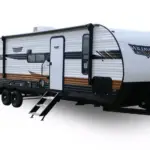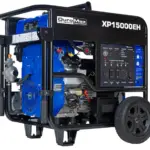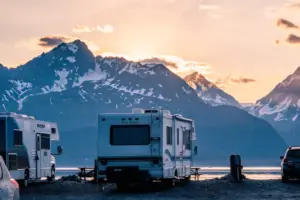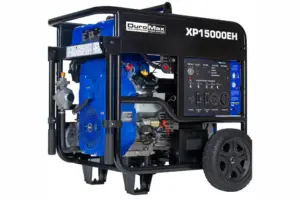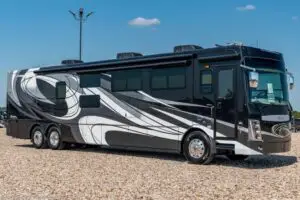As more people embrace remote work and the freedom it provides, many are opting to live in recreational vehicles (RVs) full-time. Living in an RV can be a great way to travel the country while enjoying the comforts of home.
However, choosing the right RV for full-time living can be a daunting task. There are many factors to consider, including size, layout, and features.
When it comes to selecting the best RV for full-time living, there are several options to choose from. Fifth-wheel trailers are a popular choice for those who want a spacious living area and plenty of storage space.
Motorhomes, on the other hand, offer the convenience of being able to drive your home on wheels wherever you go. Travel trailers are another option that offers the flexibility of being able to detach your living space from your vehicle.
Regardless of the type of RV you choose, there are certain features that are essential for full-time living. These include a comfortable bed, a functional kitchen, and a bathroom with a shower.
Other important features to consider include heating and cooling systems, water tanks, and storage space.
By carefully considering your needs and doing your research, you can find the perfect RV for full-time living that will provide you with the comfort and convenience you need to enjoy life on the road.
Types of RVs Suitable for Full-Time Living
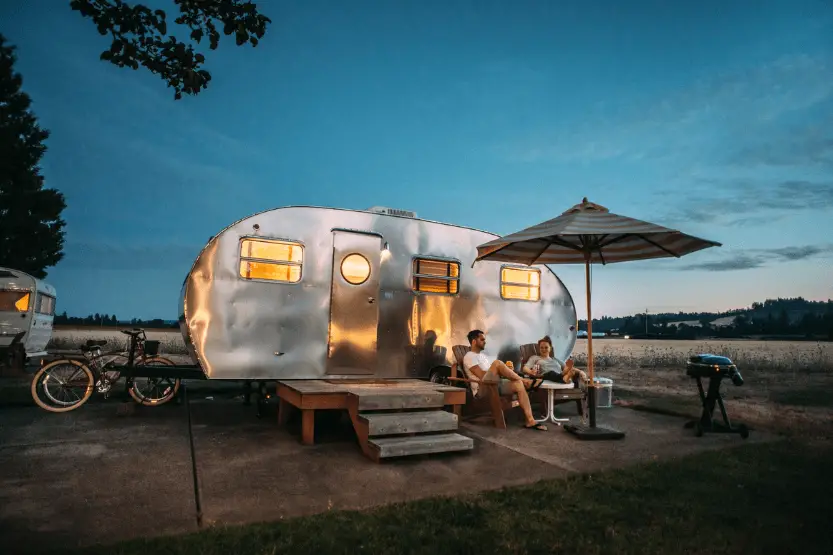
When it comes to choosing an RV for full-time living, there are several types to consider. Each type has its own advantages and disadvantages, so it’s important to choose the one that best fits your lifestyle and needs.
In this section, we’ll take a closer look at the three main types of RVs suitable for full-time living: travel trailers, motorhomes, and fifth wheels.
Travel Trailers
Travel trailers are a popular choice for full-time RV living because they are affordable and easy to tow. They come in a variety of sizes and floor plans, so you can choose the one that best fits your needs.
Travel trailers are also easy to park and maneuver, making them a great option for those who like to explore different locations.
One of the downsides of travel trailers is that they can be less spacious than other types of RVs. However, many manufacturers are now designing travel trailers with slide-outs, which can significantly increase the living space.
Another consideration is that travel trailers require a tow vehicle, which can add to the overall cost.
Motorhomes
Motorhomes are another popular option for full-time RV living. They come in three main classes: Class A, Class B, and Class C.
Class A motorhomes are the largest and most luxurious, while Class B RVs are the smallest and most maneuverable. Class C motorhomes are a mid-range option that offers a good balance of space and maneuverability.
One of the advantages of motorhomes is that they are self-contained, meaning they have their own engine and can be driven without a tow vehicle. This makes them a great option for those who want to travel without having to worry about towing a trailer.
Motorhomes also offer more living space than travel trailers, and many come with slide-outs to further increase the space.
One of the downsides of motorhomes is that they can be expensive, especially the larger Class A models. They also require regular maintenance and upkeep, which can add to the overall cost of ownership.
Fifth Wheels
Fifth wheels are similar to travel trailers, but they are designed to be towed by a pickup truck with a special hitch.
They offer more living space than travel trailers and are often more luxurious. Fifth wheels are also more stable on the road than travel trailers, which can make them a safer option for full-time living.
One of the downsides of fifth wheels is that they require a pickup truck with a special hitch, which can add to the overall cost. They are also less maneuverable than travel trailers, which can make them more difficult to park and navigate in tight spaces.
Overall, when choosing an RV for full-time living, it’s important to consider your lifestyle and needs.
Travel trailers are a great option for those who want an affordable and easy-to-tow RV, while motorhomes offer more space and the convenience of being self-contained. Fifth wheels offer more space and luxury, but require a pickup truck with a special hitch.
Key Features to Look for in a Full-Time RV
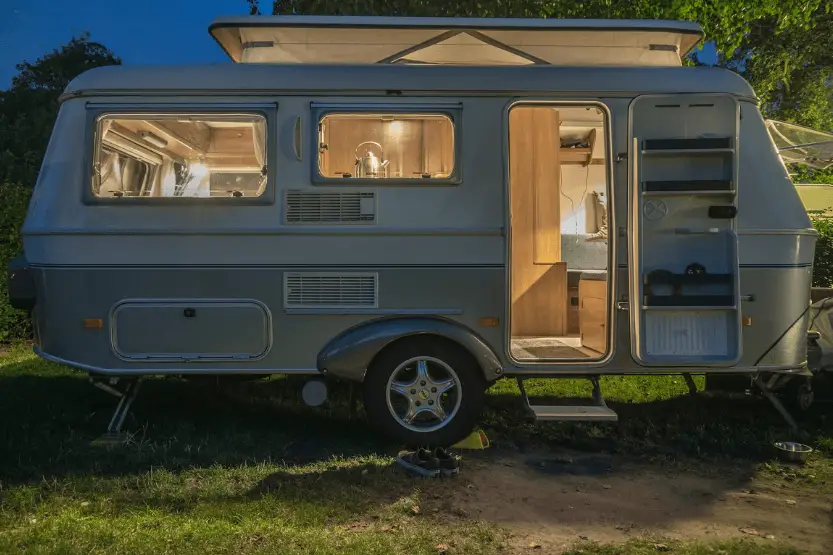
When searching for the best RV for full-time living, there are several key features to consider. These features will ensure that you have a comfortable and functional living space that meets all of your needs. Here are some of the most important features to look for when choosing a full-time RV:
Space and Comfort
As per USA Today, one of the most important features to consider when choosing an RV for full-time living is space and comfort. Look for an RV with enough space to accommodate your lifestyle. This includes enough room for sleeping, dining, and relaxing.
Look for features such as a king-size bed, bunk beds, or a Murphy bed to maximize sleeping space. Additionally, consider features such as comfortable seating and ample storage space to ensure a comfortable and organized living space.
Kitchen and Appliances
The kitchen is the heart of any home, and this is especially true in an RV. Look for an RV with a functional kitchen that includes a refrigerator, sink, and stove.
Consider features such as a residential refrigerator or a convection microwave oven to make meal prep and storage easier. Additionally, look for an RV with ample counter space and storage for kitchen supplies.
Bathrooms and Showers
Having a functional bathroom and shower is essential for full-time RV living. Look for an RV with a spacious bathroom that includes a toilet, sink, and shower.
Consider features such as a large shower with a skylight or a separate toilet area for added privacy. Additionally, look for an RV with ample storage space for toiletries and towels.
Storage Space
Storage space is crucial when living in an RV full-time. Look for an RV with ample storage space for clothing, food, and other items.
Consider features such as a pantry, overhead cabinets, and under-bed storage to maximize space. Additionally, look for an RV with exterior storage compartments for larger items such as bicycles or camping gear.
In summary, when choosing an RV for full-time living, it is important to consider features such as space and comfort, kitchen and appliances, bathrooms and showers, and storage space. These features will ensure that you have a comfortable and functional living space that meets all of your needs.
Understanding RV Lifestyle and Adaptation
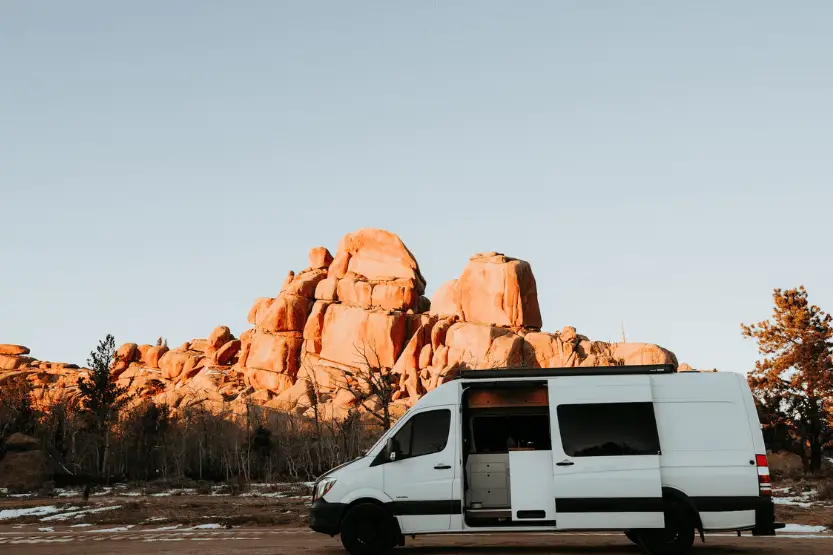
Full-time RV living can be an exciting and liberating experience for those who are ready to embrace a simpler lifestyle. However, it can also be a significant adjustment for those who are used to the comfort and convenience of a traditional home.
To make the transition as smooth as possible, it is important to understand the different aspects of the RV lifestyle and adapt accordingly.
Boondocking
As Pelican (.com), boondocking, also known as dry camping, is a popular way for RVers to explore the great outdoors without the constraints of RV parks.
It involves parking your RV in a remote location without any hookups, such as water or electricity. While it can be a rewarding experience, it requires a bit of planning and preparation.
To boondock successfully, RVers need to be self-sufficient and mindful of their resources. This includes conserving water, using solar panels or generators for electricity, and properly disposing of waste.
It is also important to research the area beforehand to ensure that it is legal and safe to park overnight.
Living in RV Parks
Living in RV parks is a more traditional way of RV living and offers a variety of amenities and services, such as water, electricity, and sewer hookups. RV parks can range from basic campgrounds to luxurious resorts, and the cost of staying in one can vary greatly.
When choosing an RV park, it is important to consider the location, amenities, and cost. Some RVers prefer to stay in parks with plenty of activities and social events, while others prefer a more quiet and secluded setting.
It is also important to research the park’s policies and rules, such as pet restrictions and quiet hours.
Overall, adapting to the RV lifestyle requires a willingness to embrace change and a sense of adventure. Whether you prefer to boondock in the wilderness or stay in RV parks with all the amenities, there is a way to make RV living work for you.
Practical Aspects of Full-Time RVing
Full-time RVing can be a rewarding and exciting lifestyle, but it also requires careful planning and consideration of practical aspects such as maintenance, fuel and power, and safety considerations.
Maintenance
Regular maintenance is essential to keep an RV running smoothly and avoid costly repairs. This includes routine tasks such as checking fluid levels, inspecting tires, and cleaning and lubricating moving parts.
It is also important to schedule regular professional maintenance, such as oil changes and tune-ups.
Fuel and Power
Fuel and power are critical considerations for full-time RVers. The type of fuel an RV uses will depend on the type of vehicle, but it is important to budget for fuel costs and plan routes that take fuel availability into account.
RVers who plan to stay in one location for an extended period may also want to consider investing in a generator or solar panels to provide power.
Safety Considerations
Safety should always be a top priority for full-time RVers. This includes ensuring that the RV is equipped with working smoke detectors, carbon monoxide detectors, and fire extinguishers.
It is also important to practice safe driving habits, such as wearing seat belts and avoiding distractions while driving.
When parking or setting up camp, RVers should be aware of their surroundings and take precautions to secure their belongings and prevent theft.
It is also important to be prepared for emergencies, such as severe weather or medical emergencies, by keeping a well-stocked first aid kit and emergency supplies on hand.
Overall, full-time RVing can be a rewarding and fulfilling lifestyle, but it requires careful planning and consideration of practical aspects such as maintenance, fuel and power, and safety considerations.
By taking these factors into account, RVers can enjoy the freedom and adventure of life on the road while staying safe and comfortable.
Pros and Cons of Full-Time RV Living
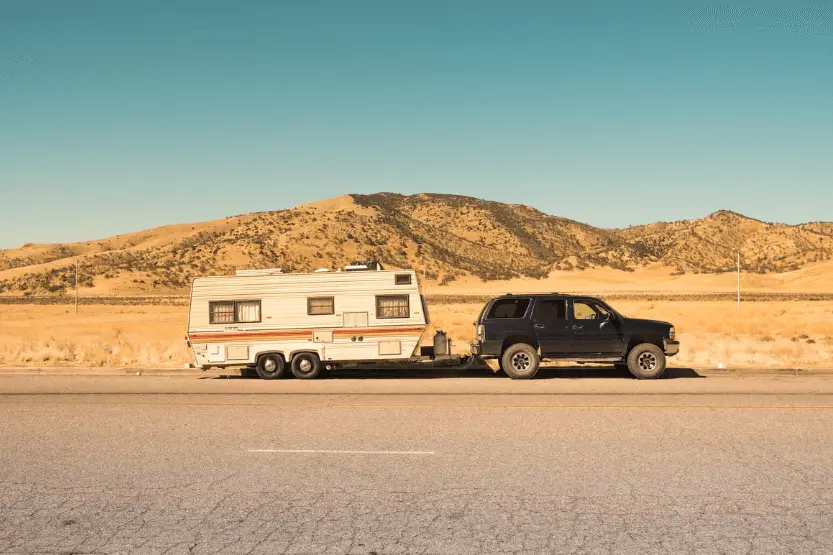
Full-time RV living can be a dream come true for those who love to travel and explore new places. However, it’s not for everyone. Here are some pros and cons to consider before making the decision to live in an RV full-time.
Pros
- Traveling: One of the biggest benefits of full-time RV living is the ability to travel and see new places. You can wake up in a different location every day and experience new adventures.
- Minimalism: Living in an RV requires downsizing and simplifying your life. This can be liberating for those who want to live a more minimalistic lifestyle.
- Flexibility: Full-time RV living provides flexibility in terms of where you live and how long you stay in one place. You can easily change your plans and move on to the next destination whenever you want.
- Lower Cost of Living: Living in an RV full-time can be less expensive than living in a traditional home. You don’t have to pay for a mortgage, property taxes, or utility bills. You can also save money on food by cooking your own meals.
Cons
- Stress: Living in an RV full-time can be stressful at times. You have to deal with the challenges of driving a large vehicle, finding places to park, and navigating unfamiliar areas.
- Limited Space: Living in an RV means living in a small space. This can be challenging for those who are used to having more room to move around.
- Maintenance: RVs require regular maintenance and repairs. This can be costly and time-consuming.
- Lack of Stability: Living in an RV full-time means you don’t have a permanent home base. This can be difficult for those who value stability and a sense of community.
Speaking from years of experience traveling in an RV, full-time RV living can be a great way to see the world and live a more minimalistic lifestyle. However, it’s important to consider the pros and cons before making the decision to live in an RV full-time.
In Summary
When it comes to finding the best RV for full-time living, there are many factors to consider. It’s important to find a vehicle that suits your lifestyle, budget, and travel goals.
Some of the top RVs for full-time living include the Forest River Berkshire XLT, Keystone Montana, Lance Camper 2465, Jayco Eagle, Coachmen Ultra Lite, Forest River Flagstaff Super Lite, Winnebago Revel, and Casita Spirit.
One of the most important things to consider when choosing an RV for full-time living is the amount of living space and storage space it provides.
The Forest River Berkshire XLT and Keystone Montana both offer spacious living areas and plenty of storage space, making them great choices for those who need plenty of room to spread out.
Another important factor to consider is the quality of the appliances and amenities included in the RV. The Lance Camper 2465 is loaded with features that make it an excellent choice for full-time RV living, including a well-equipped kitchen, a large walk-in shower, and lots of interior living space.
For those on a budget, the Coachmen Ultra Lite is a great choice. It offers a comfortable living space and plenty of storage, all at an affordable price point. The Forest River Flagstaff Super Lite is another budget-friendly option that doesn’t skimp on quality or comfort.
Ultimately, the best RV for full-time living will depend on your individual needs and preferences. By considering factors like living space, amenities, and budget, you can find the perfect RV to suit your lifestyle and travel goals.

We created RVcrown.com in 2020 as a way to geek about everything we’ve learned and are still learning about RVs. You’ll find in-depth articles covering reviews, specs, and features of the top RVs in the market. Contact me. Disclaimer: The information and advice provided in this blog are for educational and informational purposes only. The author does not guarantee any particular result or outcome from following the advice provided. See more about us.

